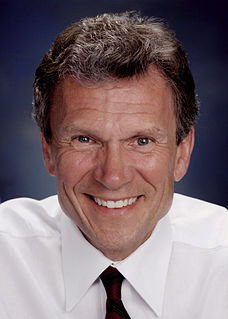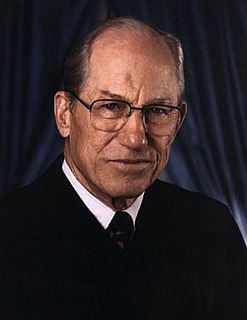A Quote by Adam Cohen
It is hard to imagine an area in which Congress has more express constitutional authority to act than in protecting the right of minorities to vote.
Quote Topics
Related Quotes
If I were in Congress in 1996, I would have voted for the Defense of Marriage Act, which used Congress's constitutional authority to define what official state documents other states have to recognize under the Full Faith and Credit Clause, to ensure that no state would be forced to recognize a 'same sex' marriage license issued in another state.
Literally minutes before the Senate cast its vote, the administration sought to add the words 'in the United States and' after 'appropriate force' in the agreed-upon text. This last-minute change would have given the president broad authority to exercise expansive powers not just overseas-where we all understood he wanted authority to act-but right here in the United States, potentially against American citizens. I could see no justification for Congress to accede to this extraordinary request for additional authority. I refused.
Elect me to office. I will protect and defend the U.S. Constitution. Because there's no constitutional authority for Congress spending on the objects of benevolence, don't expect for me to vote for prescription drugs for the elderly, handouts to farmers and food stamps for the poor. Instead, I'll fight these and other unconstitutional congressional expenditures”? I'll tell you how many votes he'll get: It will be Williams' vote, and that's it.
Although objectively greater demands are placed on this authority, it operates less as a public opinion giving a rational foundation to the exercise of political and social authority, the more it is generated for the purpose of an abstract vote that amounts to no more than an act of acclamation within a public sphere temporarily manufactured for show or manipulation.
The Constitution, in addition to delegating certain enumerated powers to Congress, places whole areas outside the reach of Congress' regulatory authority. The First Amendment, for example, is fittingly celebrated for preventing Congress from "prohibiting the free exercise" of religion or "abridging the freedom of speech." The Second Amendment similarly appears to contain an express limitation on the government's authority.
The Court is most vulnerable and comes nearest to illegitimacy when it deals with judge-made constitutional law having little or no cognizable roots in the language or design of the Constitution.... There should be, therefore, great resistance to ... redefining the category of rights deemed to be fundamental. Otherwise, the Judiciary necessarily takes to itself further authority to govern the country without express constitutional authority.
Victor Hugo said you can stop an invasion of armies, but you can never stop an invasion of ideas. There's nothing more powerful than an idea whose time has come. It wasn't until 1920, four years after my mother was born - and she's still alive and healthy - that women were given the right to vote. Now it's hard even to imagine that for the greater part of the history of our country fifty percent of the population was not allowed to vote.
Though it is disguised by the illusion that a bureaucracy accountable to a majority of voters, and susceptible to the pressure of organized minorities, is not exercising compulsion, it is evident that the more varied and comprehensive the regulation becomes, the more the state becomes a despotic power as against the individual. For the fragment of control over the government which he exercises through his vote is in no effective sense proportionate to the authority exercised over him by the government.
Under Article II, all executive power is vested in one president of the United States. The regulatory state is Congress's efforts to undermine the president's authority. And my hope is we will see a president use that constitutional authority to rein in the uncontrollable, unelected bureaucrats and to rescind regulations.
there ought always to be a constitutional method of giving efficacy to constitutional provisions. What for instance would avail restrictions on the authority of the state legislatures, without some constitutional mode of enforcing the observance of them? . . . This power must either be a direct negative on the state laws, or an authority in the federal courts, to over-rule such as might be in manifest contravention of the articles of union.































